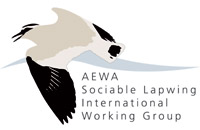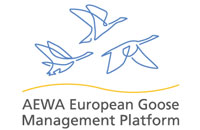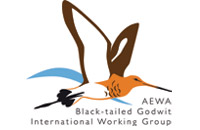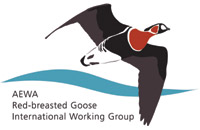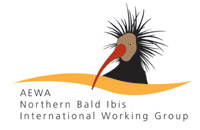AEWA International Species Working Groups (ISWG)
The establishment of inter-governmental AEWA International Species Working Groups is foreseen for prioritized AEWA Single Species Action and Management Plans. Species Working Groups are convened by the UNEP/AEWA Secretariat in accordance with generic Terms of Reference developed and adopted by the AEWA Technical Committee.
Ensuring the long-term commitment of the relevant governments is considered to be particularly important for the successful implementation of prioritized Plans. Hence, Working Group membership consists of government representatives and national experts from each range state designated by the national authority charged with the implementation of AEWA as well as observer organizations from the international conservation and hunting communities.
A further key feature to the successful functioning of a Working Group is the active coordination of its activities. A coordinating organization and a subsequent Working Group Coordinator are therefore identified by the UNEP/AEWA Secretariat to organize and facilitate the work of the Working Groups.
AEWA Sociable Lapwing International Working Group
The revised AEWA Single Species Action Plan for the Conservation of the Sociable Lapwing (Vanellus gregarius) was adopted at the 5th Meeting of the AEWA Parties in 2012. The AEWA Sociable Lapwing International Working Group was convened in 2010 and coordination of the Working Group is currently being provided by the Royal Society for the Protection of Birds (RSPB). For more information, please visit the Working Group website or contact the Working Group Coordinator Ian Fischer.
Further information related to meetings of the Working Group can be found here.
AEWA European Goose Management International Working Group
The AEWA European Goose Management International Working Group (EGM IWG) serves as the main coordinating and decision-making body of the AEWA European Goose Management Platform (EGMP), which was established in Paris in May 2016 following a decision by the 6th Session of the Meeting of the Parties (Resolution 6.4). The goal of the EGMP is to ensure the long-term favourable conservation status of all goose species and their populations under its remit by providing for their sustainable use and management. The overall coordination of the Working Group and the Platform is provided by the UNEP/AEWA Secretariat. Aarhus University in Denmark provides the EGMP Data Centre that compiles, analyses and present scientific information to inform the decision-making processes. For more information please contact the EGMP Coordinator Ms Eva Meyers.
The Pink-footed Goose International Working Group (PfG IWG) has been incorporated into the framework of the EGM IWG.
Further information related to meetings of the EGM IWG can be found here.
AEWA Black-tailed Godwit International Working Group
The AEWA Single Species Action Plan for the Conservation of the Black-tailed Godwit (Limosa limosa) was adopted at the 4th Meeting of the AEWA Parties in 2008. The AEWA Black-tailed Godwit International Working Group was convened in 2011. The coordination is being provided by Sovon (Dutch Centre for Field Ornithology) with support from the Dutch Ministry of Economic Affairs. For more information, please visit the Working Group website or contact the temporary Working Group Coordinator Mr Marc van Roomen.
Further information related to meetings of the Working Group can be found here.
AEWA Red-breasted Goose International Working Group
The AEWA Single Species Action Plan for the Conservation of the Red-breasted Goose (Branta ruficollis) was adopted at the 5th Meeting of the AEWA Parties in 2012. The AEWA Red-breasted Goose International Working Group was convened in 2011 and the coordination of the Working Group is being provided by the Wildfowl & Wetlands Trust (WWT) in cooperation with the Bulgarian Society for the Protection of Birds (BSPB). For more information, please visit the Working Group website or contact the Working Group Coordinator Mr Nicky Petkov.
Further information related to meetings of the Working Group can be found here.
AEWA Northern Bald Ibis International Working Group
The AEWA Single Species Action Plan for the Conservation of the Northern Bald Ibis (Geronticus eremita) was adopted at the 3rd Meeting of the AEWA Parties in 2005. The AEWA Northern Bald Ibis International Working Group was convened in 2011 and coordination of the Working Group is currently being provided by the Royal Society for the Protection of Birds (RSPB). For more information, please visit the Working Group website or contact the Working Group Coordinator Mr Chris Bowden.
Further information related to meetings of the Working Group can be found here.



